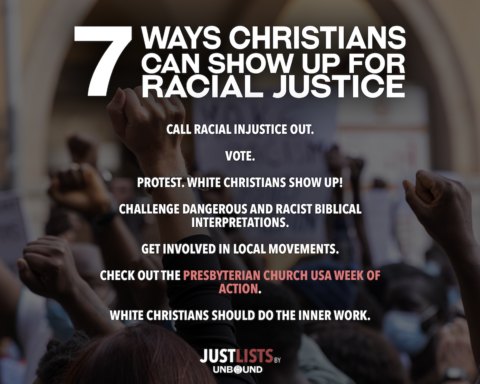What You May Not Have Heard About
By Nancy Ramsay, 2012 Teaching Elder Commissioner and Moderator for the Committee on Social Justice Issues View and Print as PDF.
View and Print as PDF.

This summer, I had the privilege of moderating the Social Justice Issues Committee of the 220th General Assembly.
Not surprisingly our agenda included a significant number of items addressing economic justice. While at times our discussion reflected partisan national political themes, the outcomes of our decisions regularly represented commitments to the most vulnerable in this economic recession including lower-wage workers and those impacted by Trade Law Reform. We also affirmed denominational study of the Accra Confession adopted by the World Alliance of Reformed Churches. The Confession, adopted in Accra, Ghana, addresses economic justice through an international lens. It can be found in the 2011-2012 Horizons Bible Study on the Beatitudes written by Dr. Margaret Aymer. I appreciated the way commissioners clearly voiced biblical themes as they worked on a range of challenging issues that fall in the area of public life.
I am especially impressed with the major study on economic justice that the Advisory Committee on Social Witness Policy (ACSWP) brought to the Assembly. Written by economists and ethicists, this substantive paper offers congregations a resource for in-depth study of theological perspectives critical for faithful responses in the context of our economic recession. It frames economic justice through the lens of the Eucharist, which I hope will give more depth to our common practice of that sacrament and enrich our theological insights into economics. Happily, the Assembly also passed this document by a wide margin. However, the paper did not receive the level of attention it deserved due to other higher profile agenda items. This calls for careful promotion of its use. The paper also includes a provision that a study paper now be prepared on tax reform for the 2014 General Assembly.
___________________________________________
While at times our discussion reflected partisan national political themes, the outcomes of our decisions regularly represented commitments to the most vulnerable in this economic recession including lower-wage workers and those impacted by Trade Law Reform.
___________________________________________
Racial justice concerns are reflected in several items, which were passed by the Assembly. In particular, I commend the Assembly’s action that encourages Presbyteries to initiate conversations between congregations whose membership reflects the dominant culture and congregations shaped by racial and ethnic communities that are often marginalized in the United States. The conversations will provide learning across racial and ethnic differences including deeper awareness of the distinctive history, experience, and contributions of minority groups. The Advocacy Committee for Racial and Ethnic Concerns (ACREC) is available to assist Presbyteries in making the matches for the conversations. I hope Presbyteries support this action because such conversations have important relational possibilities as we try to live into a truly multicultural church.
In the committee, we also addressed several issues related to violence and abuse. For example, the Assembly concurred with our recommendation that the denomination update its resources for supporting the safety of children from sexual and domestic violence. The Assembly also supported our recommendation to end the practice of corporal punishment, building on the action of the 2010 General Assembly. The Assembly’s action urges the end to corporal punishment, not only in homes and schools, but also in institutions such as orphanages and childcare facilities, and it asked states to enact licensing laws to prohibit corporal punishment in locations such as schools and residential childcare facilities. This action stirred considerable interest among more evangelical denominations and individuals who interpret scriptural referents about disciplining children more literally. Again, we Presbyterians have opportunities to articulate theological rationale for a matter of lively public debate.
Ecological justice was also a theme in our agenda. For example, the General Assembly supported the recommendation titled, “the 50 Year Farm Bill”, which seeks to implement a series of actions to encourage sustainable agriculture, the strengthening of local food economies, and the ethical treatment of both laborers and livestock. The Assembly also affirmed our recommendation to support the work of the Environmental Protection Agency—support that will translate into action when the PC(USA) urges Congress to restore the EPA’s full oversight authority under the Clean Water and Safe Drinking Water Acts. Given the number of PC(USA) congregations in rural America, I hope this 50 Year Farm Bill generates good conversation about a theology of stewardship of land.
___________________________________________
Importantly, the Assembly approved our recommendation to continue supporting a project of the National Council of Churches called “Words Matter,” which seeks to expand the language we use to refer to God and human beings and to cultivate “an understanding of
how words are tied to systems of power.”
___________________________________________
Importantly, the Assembly approved our recommendation to continue supporting a project of the National Council of Churches called “Words Matter,” which seeks to expand the language we use to refer to God and human beings and to cultivate “an understanding of how words are tied to systems of power.” I hope this project will receive more attention. It may help the denomination pursue a previously more strongly practiced appreciation for the constructive possibilities for language.
Beyond the work of the Social Justice Committee, I found the Assembly’s refusal to fund the proposals of the Task Force on the Status of Women especially disheartening. It would have provided information not previously studied about the experience of women employed in the church. We have some information about the experience of ordained women which is not encouraging; however, women in non-ordained positions, such as Christian educators, program directors, clerical positions, and other often marginalized positions in congregations, have not benefited from any reflection on issues of equity. This decision may have been affected by the post-midnight consideration of it; however, in my opinion it also fell prey to a sometimes-unreflective fiscal zeal at the expense of a broader understanding of the stewardship of resources. In this case, the latter would have encouraged the possibility of better assuring ethical practices for those most marginalized in our congregations.
There were other close votes related to issues that many consider to be matters for social justice, such as divestment and civil unions. In these situations, I was truly moved by my experience of commissioners exercising our best efforts—regardless of personal preference—to weigh the implications of our vote for the immediate and longer term integrity of the denomination and its witness. While some characterize the Assembly by what we chose not to do, from the floor, I would say it was an Assembly that was quite deliberate.
See more articles like this one from the Oct 2012 issue, “The Backstory of General Assembly”
__________________________
Author Bio: The Rev. Dr. Nancy Ramsay, Teaching Elder in Grace Presbytery, serves as Professor of Pastoral Theology and Pastoral Care on the faculty of Brite Divinity School at TCU in Fort Worth, TX (2005-). Formerly, she served on the faculty at Louisville Presbyterian Theological Seminary from 1983-2005. Dr. Ramsay is also a member of the Presbyterian Mission Agency Board (2012-2018).





Unbound Social